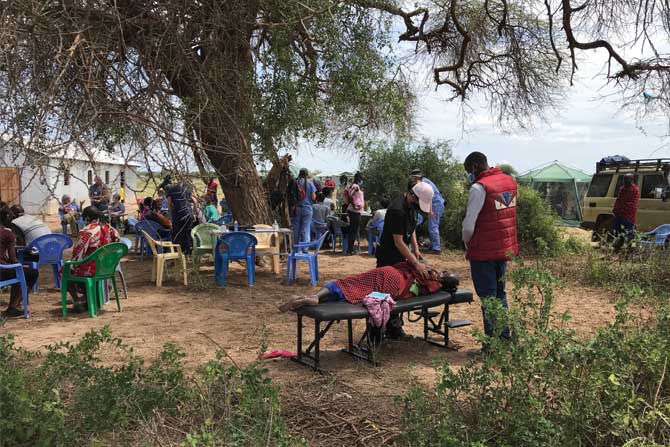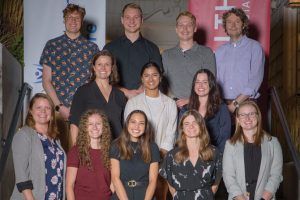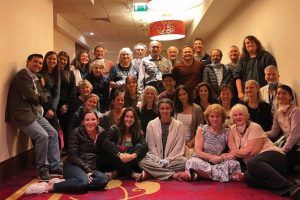Feature Photo: An outdoor triage clinic in Kenya.
After a two-year hiatus on international travel due to the COVID-19 pandemic, 2022 was a big year for me in Global Medicine: traveling to four countries, navigating several foreign languages, and partnering with seven different international medical organizations. I am lucky to be in a position that allows me to travel internationally for global health outreach, although typically not this often! Because of the greater-than-usual experience this year, UAFP reached out to ask if I had any lessons learned from these experiences to share. As in most aspects of life, lessons are abundant, but I have narrowed it down to just three.
People are People
I love this quote from Brené Brown, “People, people, people are just people, people, people.” While each culture and subculture has its own nuances and unique characteristics, at our core, people are people. We have hopes and dreams, challenges and disappointments, and we experience love and loss. The laughter of the Maasai children in Kenya matched that of the children of Haitian refugees in the bateyes of the Dominican Republic and that of my own kids. The loving concern of mothers in Honduras, wondering how best to care for their sick babies, mirrors that of the moms I see right here in St. George. While circumstances, environments, and accessible care varies from place to place, the emotions, concerns, and core needs are remarkably similar. Remembering this principle can help foster a closer connection between you and your patient when interacting with others with cultures, beliefs, or practices different from yours.
Flexibility is King
Anyone who travels, whether for personal or professional purposes, knows flexibility is critical. Flight delays and cancellations, lost luggage, bad directions, etc., are all possible. Planning and preparation help, but you come to expect the unexpected and roll with it. In Kenya, our team lost 11 pieces of luggage and had to push our bus out of a mud hole in the rain. Our flight from Miami to Honduras was delayed, delayed again, and then canceled, costing us two days. Roll with it! But in global medicine, flexibility goes beyond just adjusting travel plans and adapting positively to mishaps; it extends right into the clinic and patient care.
Family physicians know all about flexibility – we adjust clinic schedules on the fly when we have a critical patient, a baby to catch, or a colleague to cover. We adjust treatment plans to meet our individual patient needs, and we wear many hats, both in the clinic and in the community. This quality is just as essential in low-resource settings. On shorter trips, you pack, unpack, set up, take down, and help in all aspects of the clinic, from triage and treatment to pharmacy and flow. In more long-term settings, you help stock, rotate, and label supplies. You may need to help patients check in and out of the clinic, take your own vitals, etc. No job is too small: you sweep up messes, take out the trash, or do anything else that is needed. Being willing and able to step in wherever there is a need is a strength of family medicine critical to global and low-resource medicine, at home and abroad.
Fill the Right Need
Medicine is all about meeting needs. As family docs, we know that sometimes a patient may have more needs than what we can possibly fill in one visit. When working in low-resource settings, this is often the case. So, we triage the needs and address the most important issues first. This year I had a few experiences remind me that the most salient need might not be the obvious one.
One of these was in the Dominican Republic during a home visit to an elderly woman suffering from a neuromuscular disease. She needed to understand her illness and be connected with local resources to improve her health. Working with our team leader, a local physician, we set up a strong follow-up and referral plan. Need met, or so I thought. She thanked our team as each of us left her room. Being the last, I knelt down to be at her eye level to say goodbye. She looked at me, smiled and asked in Spanish, “Are you going to pray for me?” I responded, “Would you like me to pray for you?” She responded, “Por favor.” My prayer was simple, but we connected in a way I will not forget. She did need those other things addressed, but her true need was deeper.
In Summary
International travel is just one small aspect of global medicine, but these principles are helpful no matter where we practice. Remember, people are people, stay flexible, and while triaging what needs to address, do not neglect the deeper needs: the need to connect, the need to be seen, the need to know we care.
Dr. Wardle is Assistant Professor of Primary Care Medicine, Director of Medical Spanish Elective, and Director of Global Medicine Track at Rocky Vista University – Southern Utah Campus in Ivins, Utah.
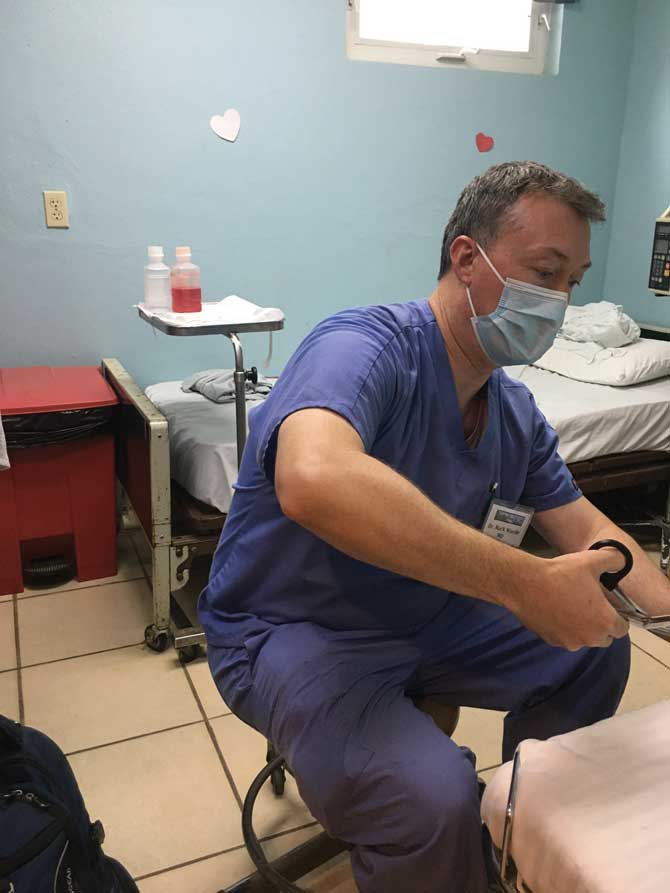
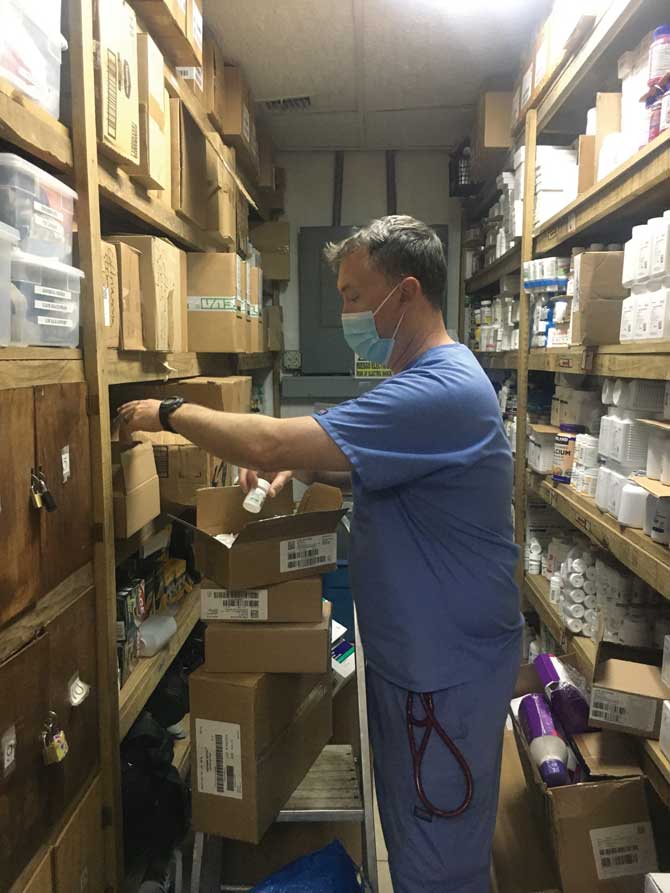
Physician volunteers like Dr. Wardle helped with triage, procedures, teaching, stocking the pharmacy, supervising students, transportation, loading and unloading trucks and vans, and more.



